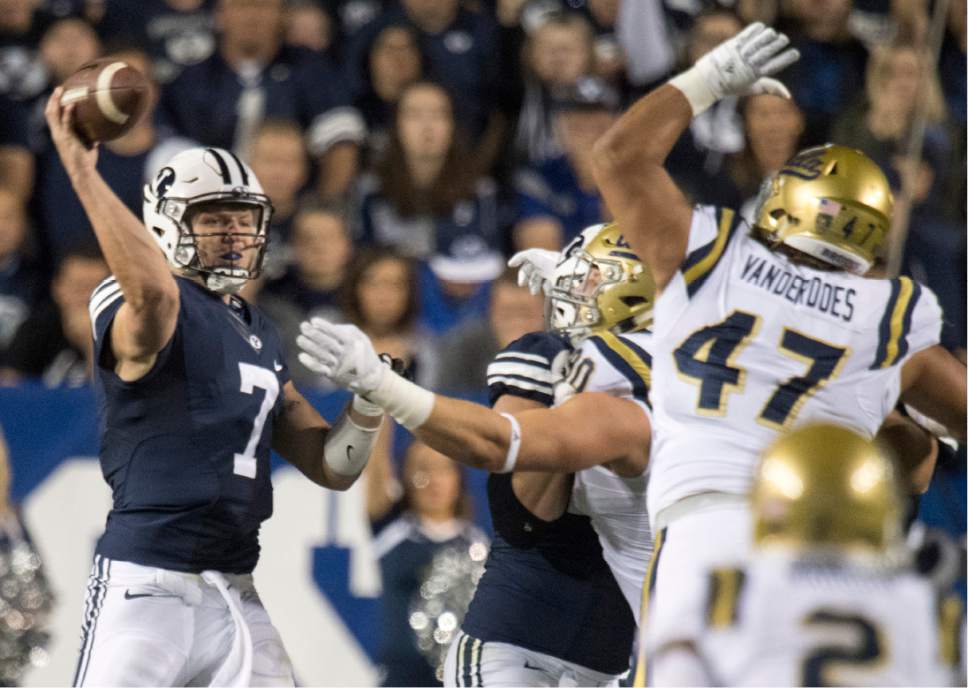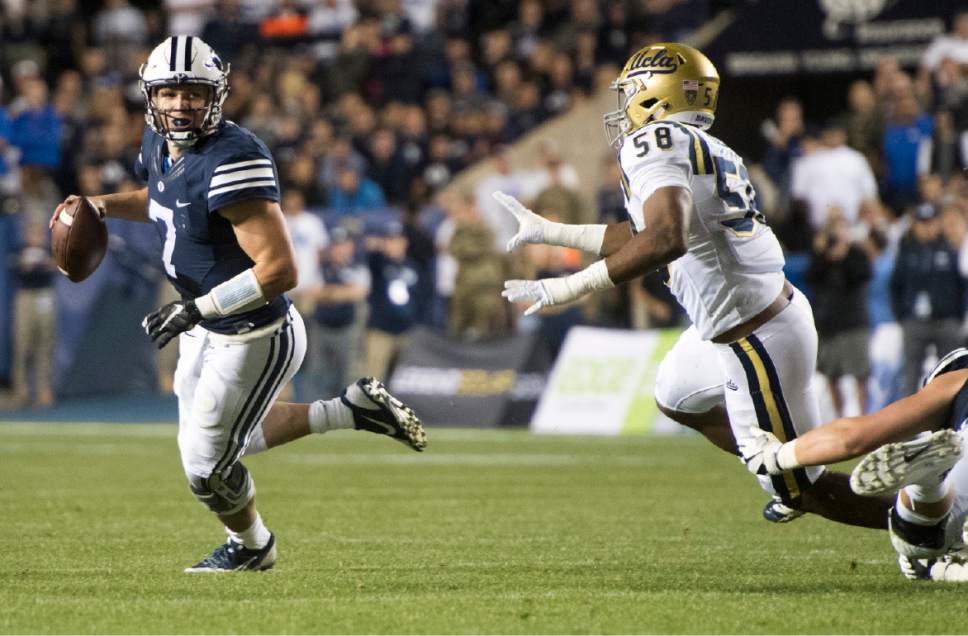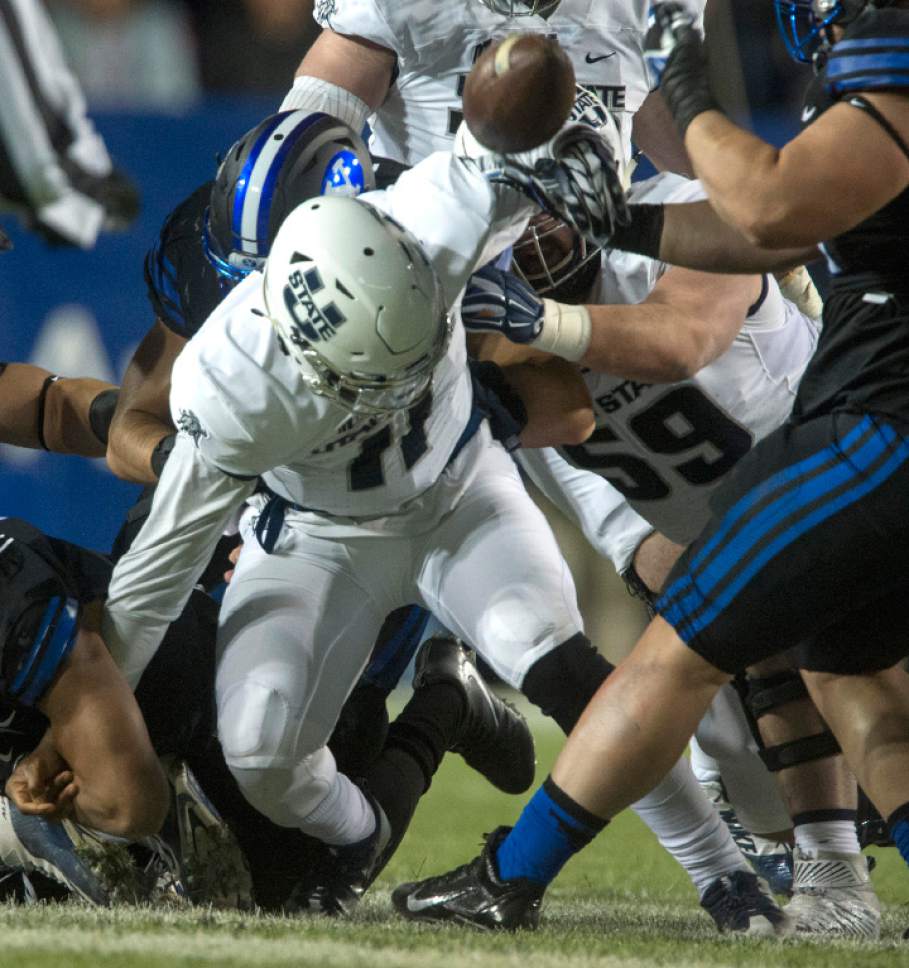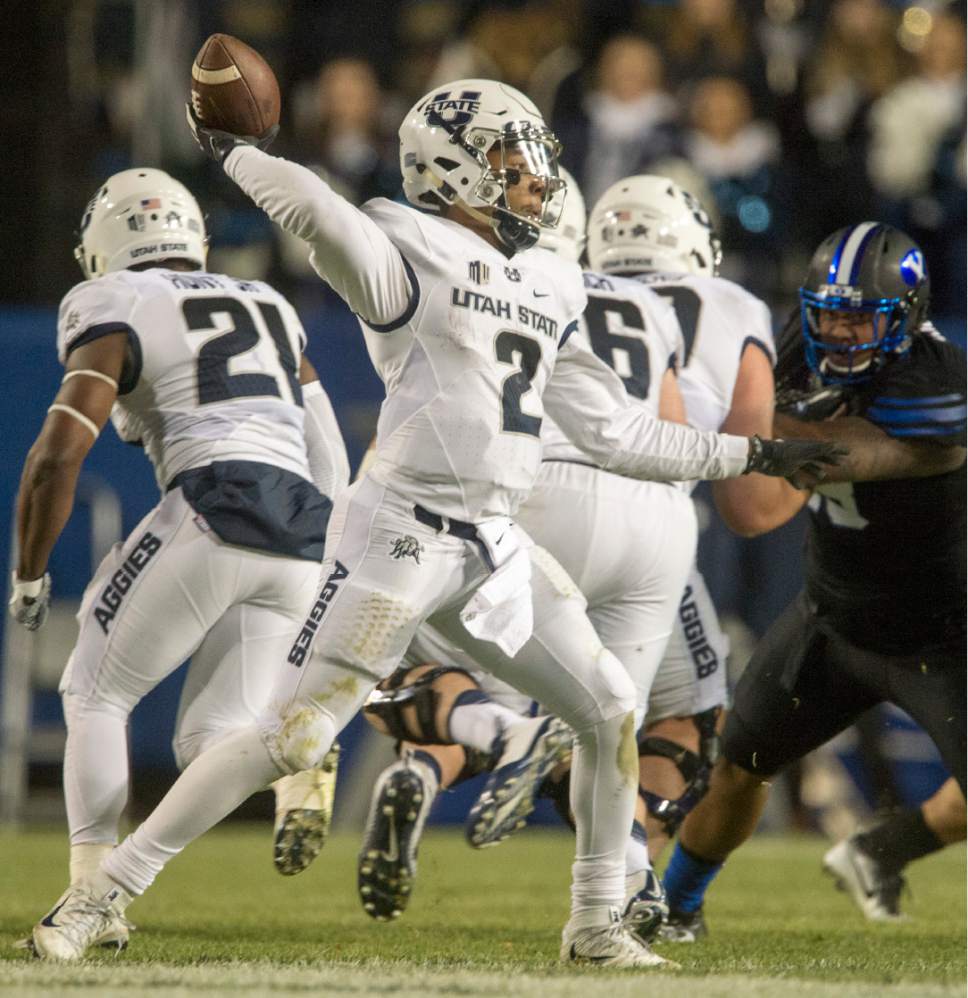This is an archived article that was published on sltrib.com in 2017, and information in the article may be outdated. It is provided only for personal research purposes and may not be reprinted.
The Mountain West Conference and BYU have some decisions to make about TV contracts. Starting with: Do they continue to sign deals with national TV outlets or go it on their own?
And no, we're not talking about a return to The Mtn.
The vast majority of the attention and the money in college sports goes to the Power Five conferences. In the upcoming school year, Mountain West schools will make about $1.75 million each from ESPN, the CBS Sports Network and ROOT — with additional "bonuses" (weighted to favor Boise State) ranging from nothing to $2 million-ish.
The ACC, Big Ten, Big 12, Pac-12 and SEC will make between $16 million and $25 million from national TV revenue alone — and millions more from other deals.
But things could be worse. The Mid-American Conference has sold its soul — and sold out its fans — to ESPN.
The MAC plays a normal schedule through Oct. 21 — 64 Saturday games; three Thursday night games; and three Friday night games. MAC teams play one Saturday game (Oct. 28) after Oct. 21.
Beginning Oct. 26, the MAC has nine Tuesday games; seven Wednesday games; four Thursday games; and three Friday games — four if you count the league championship contest. And the MAC trumpeted this news by announcing it would have "22 late October and November nationally televised games on ESPN2, ESPNU, ESPN3 and CBS Sports Network."
Um, ESPN3 is online only.
Gee, who wouldn't want to go to a midweek night game in November in Buffalo, Toledo or Akron? Sort of makes those late Friday or Saturday starts in Provo, Salt Lake City and Logan look good.
The MAC is getting paid about $833,000 per school per year for this scheduling atrocity.
The MWC is in no better position than the MAC to negoiate with ESPN. Although the Powers That Be at the Mountain West at least are beginning to wonder if late starts and midweek games would be worth it.
To be clear, no one is saying that the MWC is facing midweek games. But that was one of the reasons the league cut ties to ESPN and launched the now-defunct Mountain West Sports Network — aka The Mtn. — in 2006.
MWC commissioner Craig Thompson told the San Diego Union-Tribune that the league might consider cutting its TV ties and streaming all its games online. Football could be played on Saturday afternoons; basketball games could start at 7 p.m.
That's great for ticket-buying fans but bad for exposure. Maybe bad for recruiting. Maybe another step on the road to irrelevency — but the gap between the Power Five and the Group of Five is already so enormous, would it really matter?
But how much exposure is the MWC really getting when, for example, one of its men's basketball semifinals tipped off at 11:52 p.m. ET?
And is it worth the estimated $3 million to $5 million a year ESPN pays BYU to play football games at 8:15 p.m. MT? Does ESPN want BYU to play midweek games? We'll know soon — the BYU/ESPN deal expires in 2018, although ESPN can exercise an option for 2019.
BYU could re-up with ESPN or make a deal with CBS, NBC or Fox. Or it could air its home games on BYUtv and stream everything online.
But would that be enough for a university that prizes exposure so highly?
The Mountain West and BYU have options. Making a lot of money off a TV deal isn't one of those options, however.
Scott D. Pierce covers TV for The Salt Lake Tribune. Email him at spierce@sltrib.com; follow him on Twitter @ScottDPierce.















